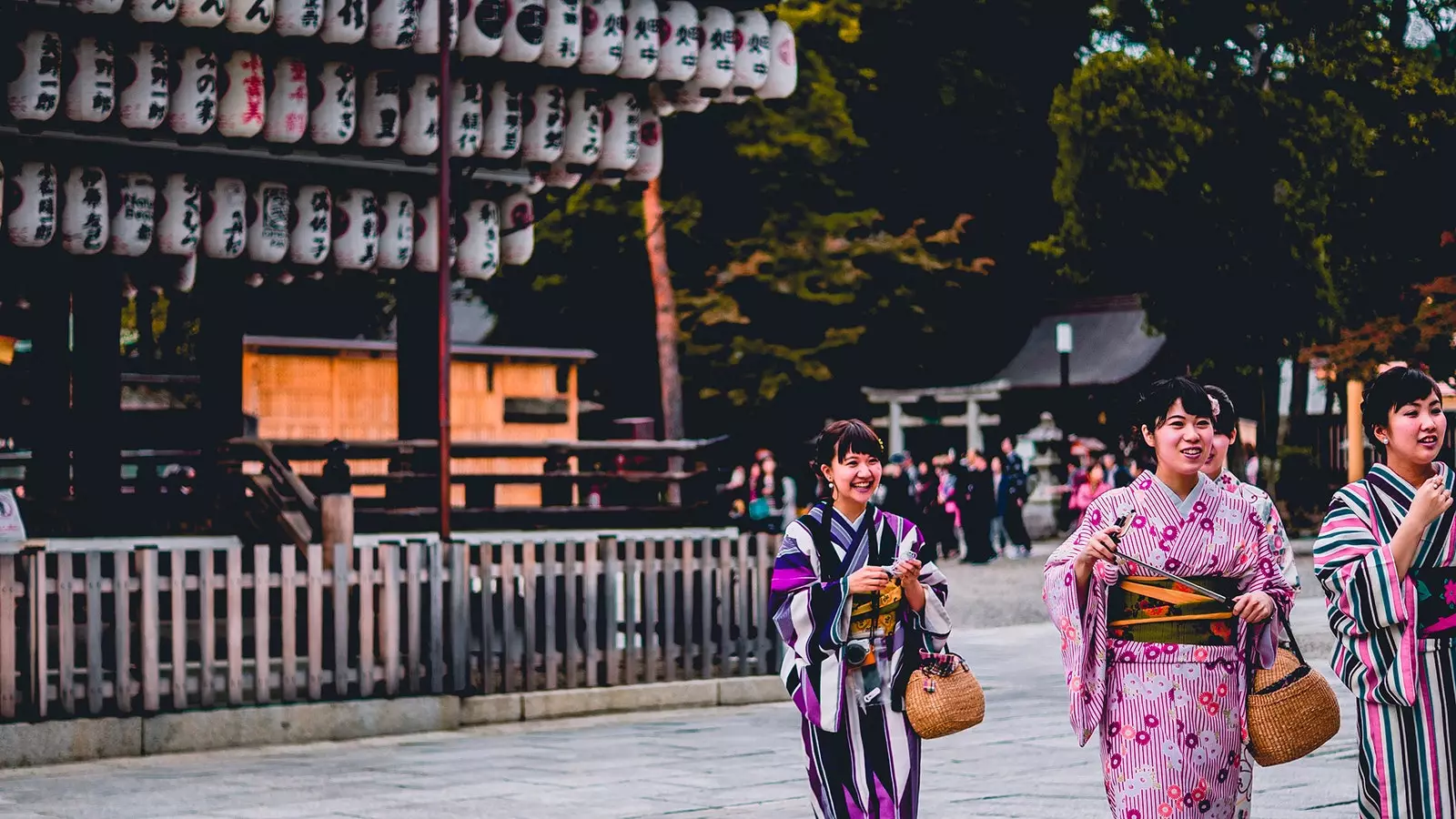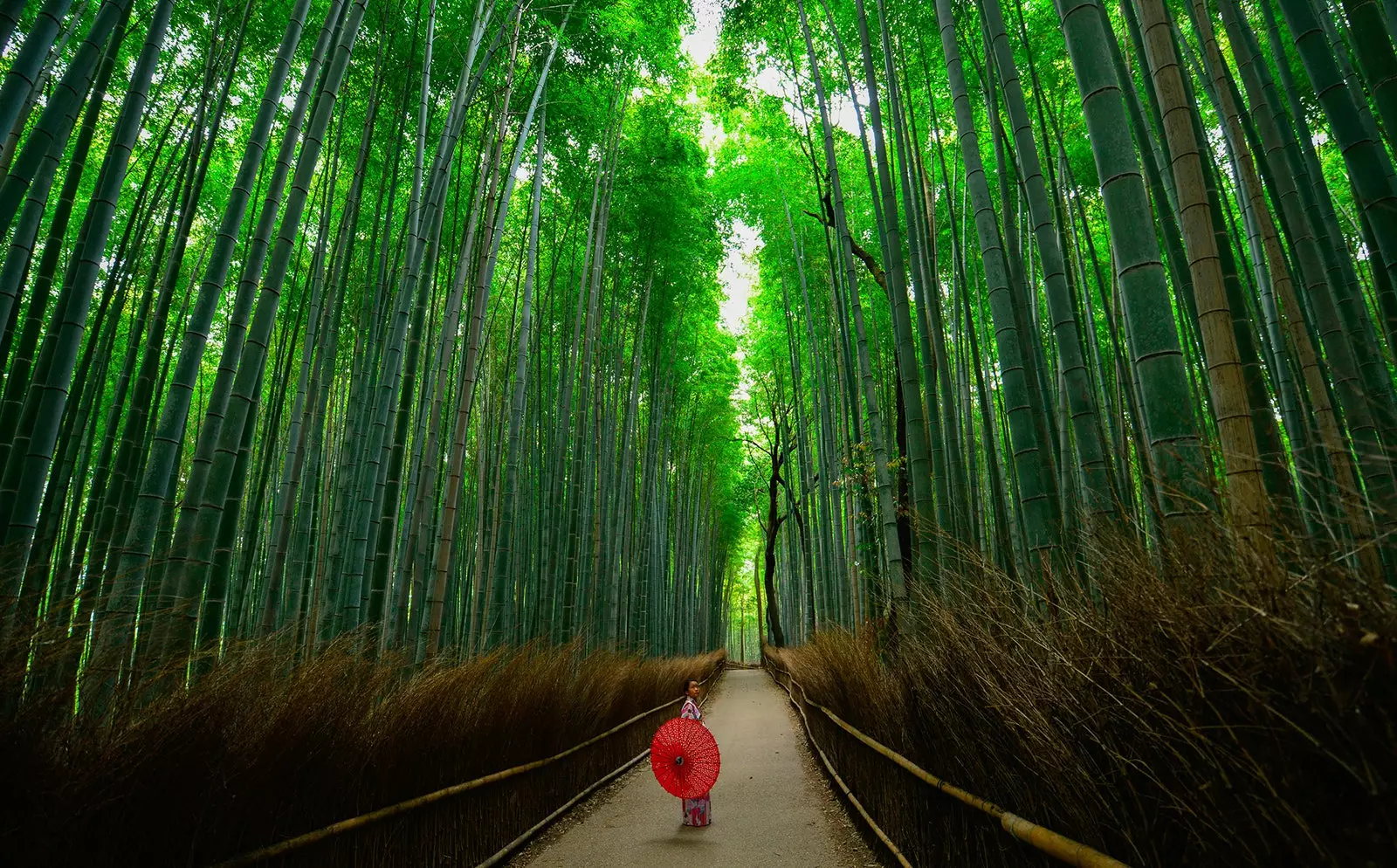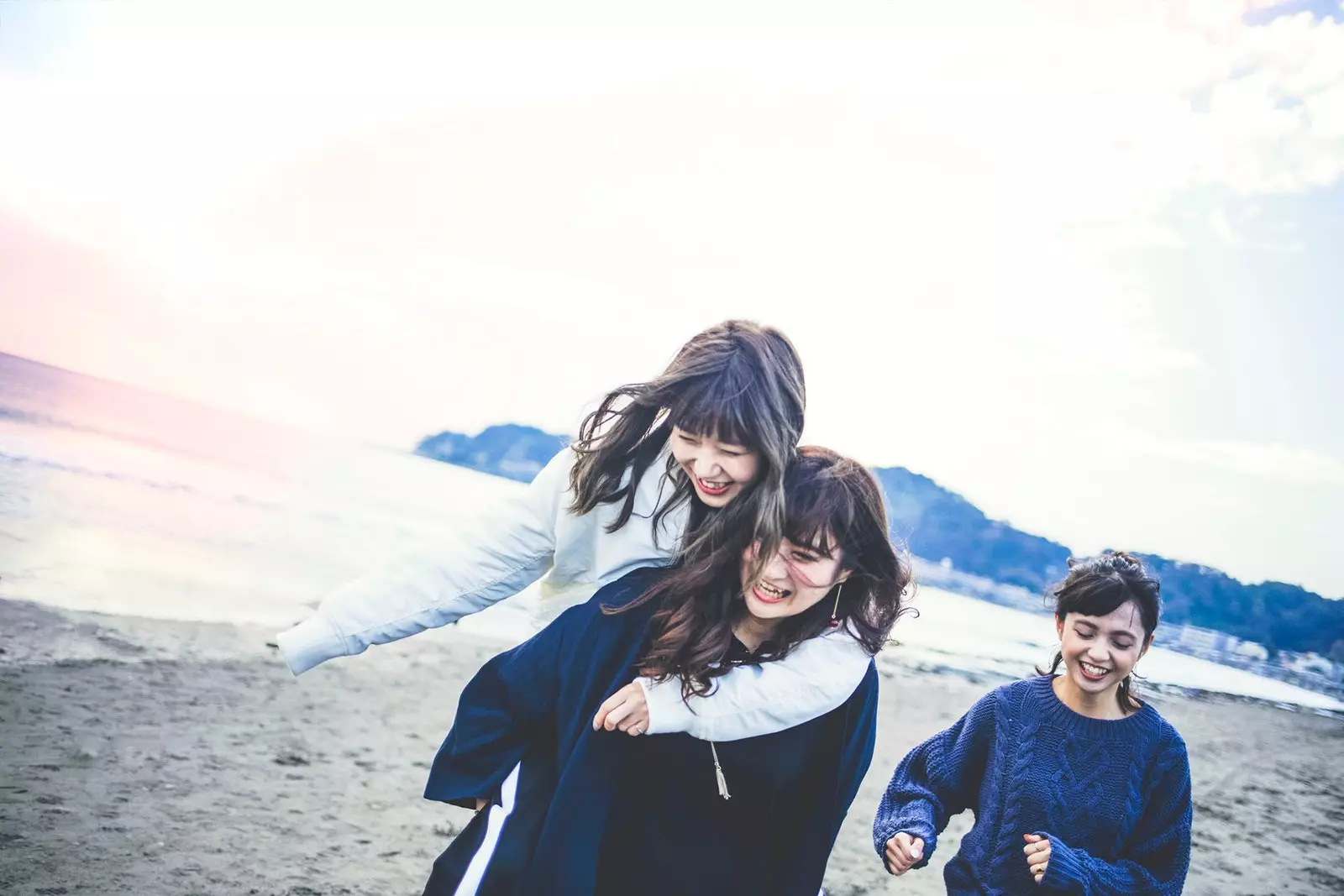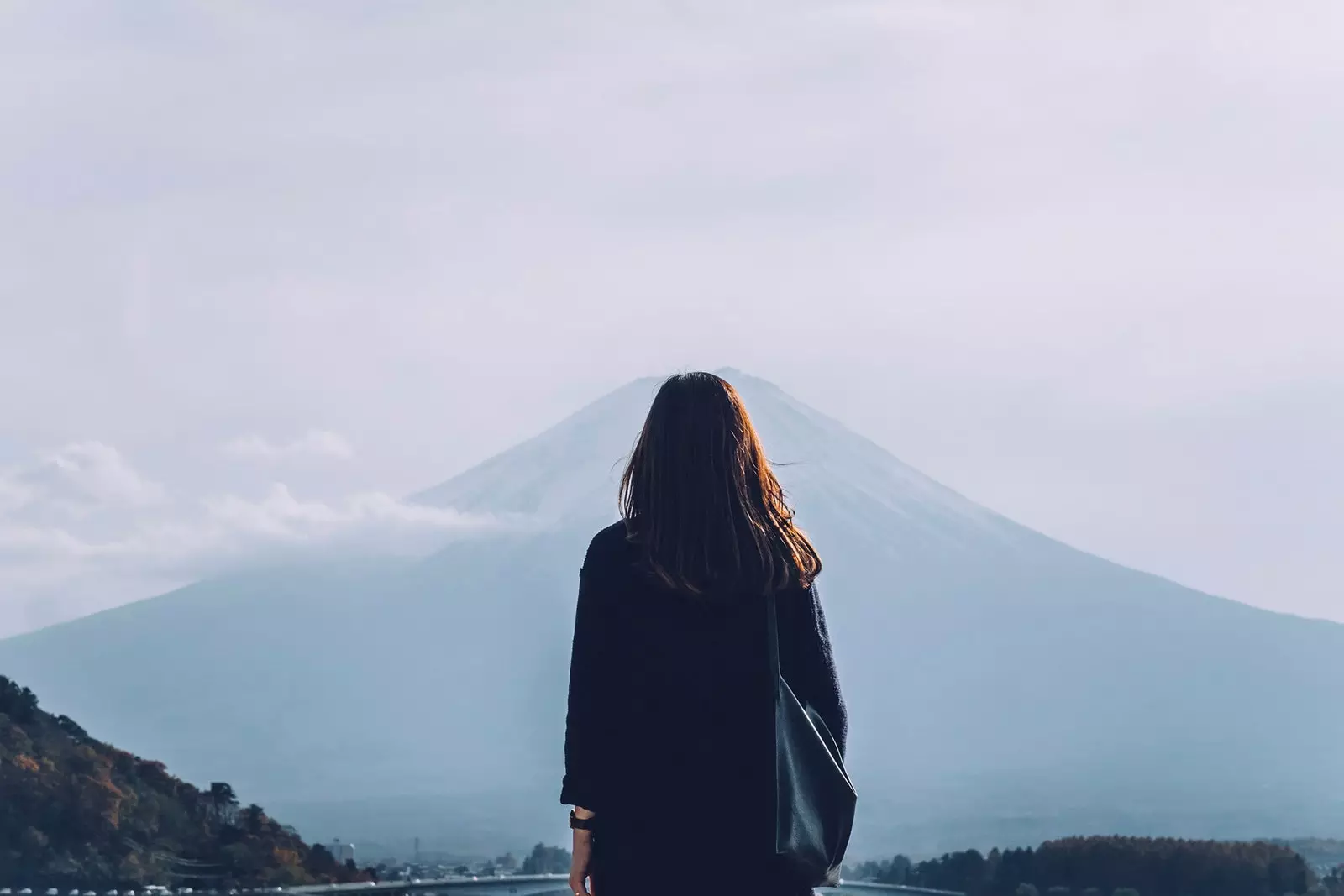
You'll want to pack your bags!
"I am of the opinion that Japanese culture and traditions are so unique and special because of its long history of isolation ", Explain Erin Niimi Longhurst referring to the fact that, for more than two centuries -more or less from 1603 to 1867-, the island imposed a foreign policy isolationist , known as sakoku.
Born to an English father and a Japanese mother, Niimi has lived in London, Seoul, New York and Japan, where her family lives, so she has done the opposite of isolating herself from her. Therefore, she is able to see the civilization of her ancestors through a very Western prism, as she shows in Japonism, the art of achieving a full life (Dome Books, 2018).
In this small and charming volume, the author takes us by the hand through everything that forms the unique Japanese character, from matters of the heart to food, passing through traditional arts such as tea ceremony or the bathroom in the onsen .

15 Untranslatable Expressions That Will Make You Fall Even More In Love With Japan
Concepts such as forest baths, known as _ shinrin-yoku ,_ the "looking at the flowers" that represents the Hanami , or the momiji , the passion for autumn-. The ikigai , which seems to contain in its interior everything necessary to live a long and happy life, is also reflected in Japonismo, as well as many other practically untranslatable expressions so characteristic of the country's speech.
They reveal all the poetry and the wonderful sensitivity of their culture and show us which aspects of their day-to-day life the Japanese place emphasis on: after all, if what is not named does not exist, as stated George Steiner, what has a proper name to describe realities that we ignore here must also define reality.
1 NOMIKAI : It's drinks, karaoke and socializing with colleagues after work . It occurs very frequently in Japan. "There's nothing like dancing to Madonna songs with your boss and colleagues at a wedding to see a part of them that would never come out in a client meeting," says Niimi.
two. OTSUKARESAMA: It's something you might say to a colleague or friend after a hard day's work. The literal translation is "are you tired", but in essence it is about recognizing the effort of the other person and showing that you value and appreciate it. “You have worked so much that you are tired. I want you to know that I realize it and I appreciate it”, the author gives as an example.
3. KOUKAN NIKKI: He is a "friendship diary ". It is passed from one friend to another every day, especially during school, to document the best and worst moments and the funniest anecdotes. They come with pre-printed categories, ready to be completed.
Four. KOKUHAKU: “Many Japanese love relationships begin with a big confession which is known as kokuhaku. Typically, one of those involved professes her love for the other right at the start, with the intention (and hope) of being reciprocated,” writes Niimi. The process to obtain an answer can be quite long, "as much as the period that extends between the Valentine's Day and the White day. On Valentine's Day, people (usually women) give chocolates to the object of their affection. Then they must endure the excruciating month-long wait until White Day (March 14) arrives and find out what they get in return.” If love is unrequited, man will give away giri crashed as a reply. Its literal translation? "Chocolate by engagement."
5. CHOUSHO WA TANSHO : This expression will empower you, because it means: “The weak points are what make us strong”.

'Koukan nikki', something perfect to do with friends
6. YAEBA : It is the aesthetic trend that advocates a crooked, misaligned smile. “What makes the yaeba beautiful is that it represents the liveliness of youth, the idea that they are precisely the defects of an imperfect smile on irregular teeth which makes it charming and beautiful”, says the author.
7. TSUNKDOKU: Describe the phenomenon of accumulating books you don't read. (Oops, guilty!).
8. FUREAI KIPPU : Its literal translation is "ticket for a caring relationship". It is a physical and interchangeable manifestation of altruism that takes the form of a social currency that represents one hour of community service . It can be earned, paid or exchanged and carried out between people of the same age or from different generations. It can be running an errand for someone, giving them a ride, helping them mow the lawn… “Those who live far away from their elderly relatives can help out in their own community and then transfer the credits so that they can access the kind of help that, had they lived closer, they would have provided themselves,” explains Niimi.
9. MONKEY NOT AWARE: “Mono” means “thing” and “aware”, the slight sadness that causes the ephemeral nature of life. An example? “At some point in your childhood, your mother or father grabbed your arms or carried you on their shoulders for the last time. And mono no aware captures exactly the feeling that thought evokes.
10. NATSUKASHII: It is a feeling of nostalgic happiness, something that awakens an emotion or a memory. It usually occurs when, for example, you savor a familiar food that you haven't tried in a long time, you hear a record you loved a while ago or you meet up with classmates.

Who has not fallen into the 'tsunkdoku'...?
eleven. KACHOU FUUGETSU: It is an aphorism that could be translated as "learning about oneself through the experience of beauty of the nature". It is one of the consequences of the famous “forest bathing”, the shinrin-yoku.
12. KAWAKARI : This word is used to describe something very particular: how the light , especially that of the Moon , is reflected in a river, and its glitters, ripples and mirages.
13. FURY : It is the activity of giving a bathroom at home . However, in Japan baths have a different importance: “Japanese bathtubs are usually very deep , so much that you can get up to your shoulders, and most have a button that allows you to reheat the water,” says Niimi. And she adds: “ One does not take a bath to clean up : that is done outside the bathtub”, specifically, with the shower head on the floor -which is prepared to be wet- or with a bamboo bucket of water. “Bathing is relaxing, letting the body relax and release tension. It is also an ideal time to reflect, put priorities in order and free yourself: frustrations will go down the drain with the water.”
14. TE-ARAI AND UGAI : “Wash” and “rinse your mouth or throat”, respectively. Both actions make up, according to the writer, a very common practice when entering the house. “When you arrive, the first thing you do is wash yourself. get rid of impurities (bacteria, for example) or simply to change the mood”.
fifteen. OHAMASHIMASU: Its literal translation is "I'm going to get in your way" or "I'm going to get in your way", but the connotations are not negative , If not the opposite. “The recognition of the inconvenience that you are going to cause the host, and it refers to the hospitality that you are going to receive, ”says Niimi. “It has a certain nuance of Sorry forks respectful , as you are acknowledging that you are going to invade your host's personal space, that you may get in the way and that you are going to depend on him ".

'Kachou fuugetsu' in its purest form
